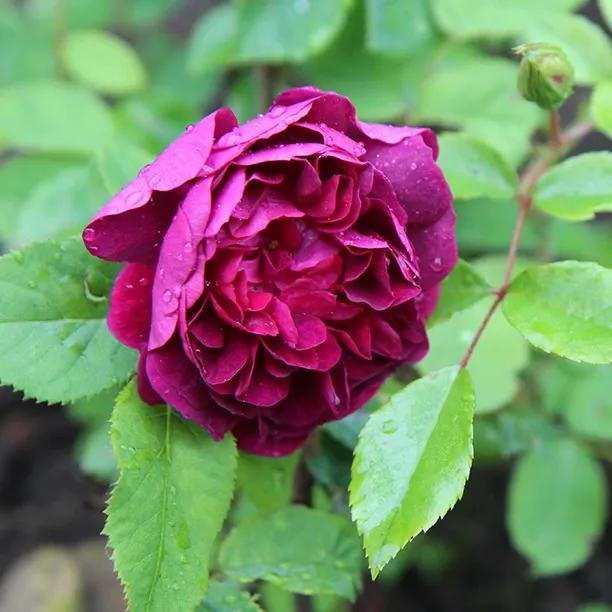William Lobb Shrub Rose Bushes
Honest Delivery Prices- Height: 1.8m
- Colour: Dark Crimson
- Shape: Double
- Scent: Strong
- Flowering period: Once in summer
- Type: Hybrid Tea
- RHS Award of Garden Merit
Recommended extras
Description
William Lobb Shrub Rose Bushes
William Lobbis a large dark crimson old shrub rose with a rich perfume and grows to 6' x 6' (1.8m x 1.8m). It is considered the best of the moss roses - roses that have hairy soft spines on the buds and stems. This rose is extremely disease resistant and carries rich crimson, rather ragged semi-double flowers in the summer which slowly fade to mauve and lilac with golden yellow stamens.
The foliage is grey green and the moss greyish brown. It has good strong stems but does need some support. The William Lobb rose prefers full sun but is tolerant of soil. However, it is worth noting that all shrub roses prefer a pH of 5.5 - 7.5 which is acid to neutral. It has received an RHS Award of Garden Merit.
Great for your garden
William Lobb is at its absolute best at the back of a border or with mixed planting although it also makes a very good low climber. It is good grown over low wall or arches and can even be grown into other deciduous shrubs. The flower colour makes it perfect for growing with blue and purple herbaceous plants where the colours will flatter each other. It could also be used as a complimentary planting for yellow and orange summer flowerers.
William Lobb characteristics
- Colour: Crimson flowers
- Flower shape: Semi double
- Fragrance: Strong scent
- Final height and spread: 6' x 6' (1.8m x 1.8m
- Flowering season: Summer flowering
- Disease resistance: Very good disease resistance
Trivia
William Lobb was bred in France by Jean Laffay in 1855 and was renamed in memory of William Lobb the plant hunter who died in 1864.
William Lobb was a Cornishman who, after various horticultural jobs, was employed by Veitch Nurseries in Exeter. He was sent out on contract to various countries around the world and was charged with finding new plants for Veitch to sell to eager Victorians. Lobb brought back the Monkey Puzzle Tree and Wellingtonias and became known as 'The messenger of the big tree'.
After many years his relationship with Veitch deteriorated and, after his last three year contract ended, he decided to stay in California. By now he was very sick and he died alone in 1864. It was only after his death that his service to the horticultural industry was recognized.



